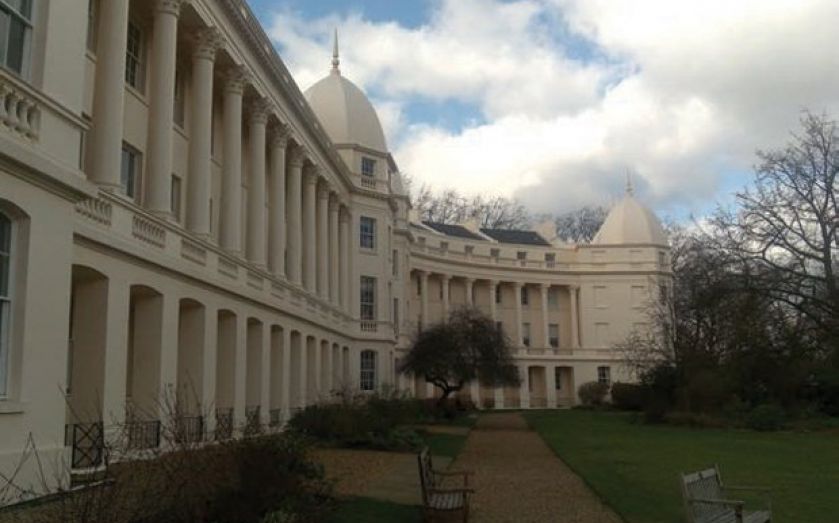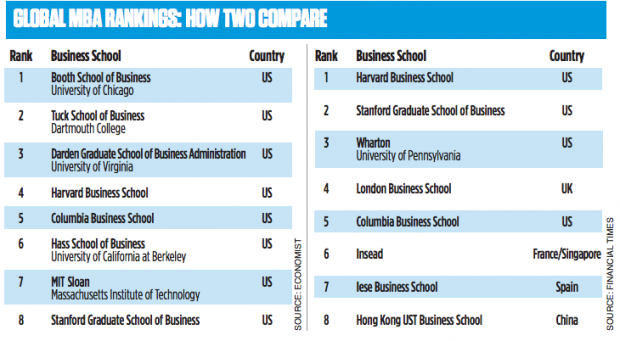MBA and masters courses: How to make the choice

The difference goes beyond required skills
THE MBA programme has long been a gold standard of business education, signalling analytical, managerial and teamwork skills to prospective employers. The popularity of masters in finance courses, however, has increased dramatically in recent years. Cass Business School’s Chris Johnson says that “we have had to enormously expand the offering of masters courses in response to student demand.” The two courses can differ significantly in terms of content, cost and experience required, but both offer excellent career prospects. In its 2012 cohort, 92 per cent of the London Business School’s MBA graduates secured employment within three months, with the rate for Cranfield’s masters graduates similarly impressive at 95 per cent.
SKILL SETS
According to Gavin Bonnet of the recruitment agency Correlate Search, “A masters in finance demonstrates high quantitative proficiency, including modelling and analysing complex datasets, essential skills in many City jobs.” Figures for the London Business School masters in finance show that 76 per cent of the 2012 cohort went into the finance sector, with banking and investment management making up 43 per cent of this group.
MBA programmes, by contrast, tend to emphasise a wider range of skills, with just 32 per cent of the latest London Business School cohort opting for financial services. Steve Cousins of Cass says that “in addition to the core analytical competencies, MBA courses aim to enhance research and interpersonal skills by challenging the way people do things and working with experienced peers.”
AGE DIFFERENCES
Cousins also points out that “the average age of MBA students is around 30, while it is significantly younger for masters courses.” Masters programmes are available to those who have recently graduated with a 2:1 or above from a good university, with MBA courses typically requiring a minimum of three years’ experience. But even three years may be insufficient for the top schools. “We ask why an applicant with three years work experience wants to complete an MBA,” Cousins says.“An MBA seeks to increase the richness and depth of experience a person already has,” meaning those with less career experience may not benefit as much from the programme.
COST
Because most masters courses are one academic year, they tend to be at least half the cost of an MBA. The full-time MBA and masters courses at Cass Business School cost a respective £34,500 and £18,000; at Cranfield, fees are £35,000 and £15,000, while London Business School charges £61,400 and £37,000. The length of the course will also affect the cost, with MBA students foregoing an extra year of paid work compared to those undertaking a masters.
Despite these onerous figures, there are ways to mitigate the cost. Most institutions offer part-time study options, allowing students to take the course outside of work hours and over a longer time period. The London Business School masters in Finance, for example, can be taken over a 22- month period on a weekend basis.
